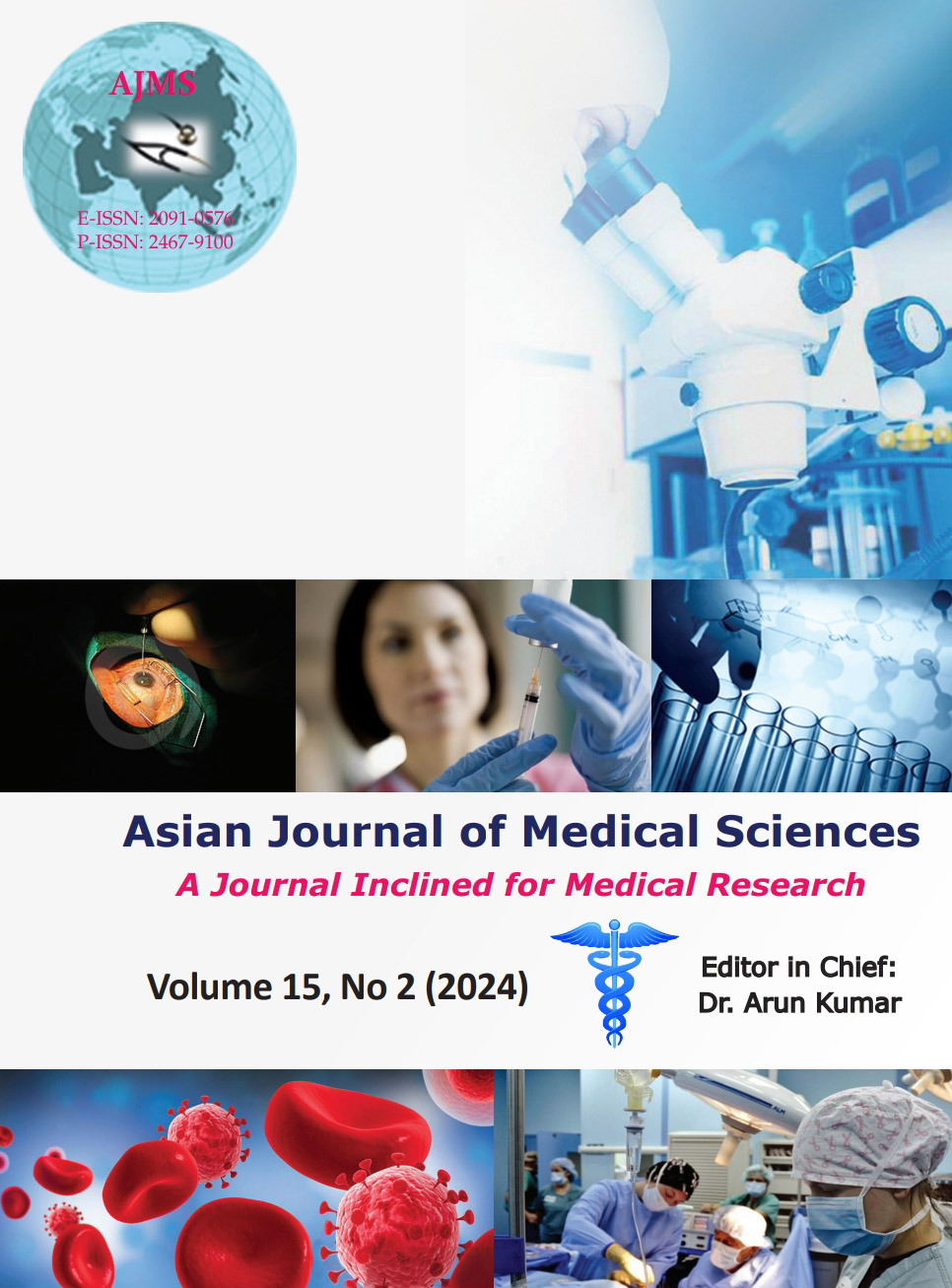Demographic pattern and histopathological profile of neuroendocrine neoplasms diagnosed at a tertiary care center in North East India
Keywords:
Neuroendocrine tumors; Neuroendocrine carcinoma; Ki-67 labeling indexAbstract
Background: Neuroendocrine tumors (NENs) are a group heterogenous group of tumors that can arise in any organ in the body and have a wide range of aggressiveness.
Aims and Objective: To compare the frequency of NENs in our setup to those reported in the literature to age, site, and degree of differentiation by doing a retrospective study.
Materials and Methods: Cases of NENs that were diagnosed in the Department of Pathology, in our hospital over the past 5 years were studied considering the age, location, and degree of differentiation. A fresh panel of immunohistochemistry (IHC) was conducted for those cases where IHC was not done.
Results: A total of 46 cases of NENs were reviewed. About 56.5% (26 cases) were males and 43.5% (20 cases) were females, with a median age of 46 years. In our study, most of the tumors are found in the gastro-entero-pancreatico-hepatobilliary group followed by the NENs of the endocrine gland (21.7%) and broncho-pulmonary group (15.2%). NENs were graded based on mitotic count and/or Ki-67 labeling index, and/or the presence of necrosis. In total 21 cases (45.7%) had G1 grading, 7 cases (15.2%) had G2 grading, 2 cases (4.3%) had a G3 grading, and 16 cases (34.7%) were graded as neuroendocrine carcinoma.
Conclusion: As the majority of the studies do not include benign NENs and those arising from the endocrine glands, therefore comparison of our results can be difficult. This is the first attempt to study the NENs from North East India and to analyze their clinicopathological features.
Downloads
Downloads
Published
How to Cite
Issue
Section
License
Copyright (c) 2023 Asian Journal of Medical Sciences

This work is licensed under a Creative Commons Attribution-NonCommercial 4.0 International License.
Authors who publish with this journal agree to the following terms:
- The journal holds copyright and publishes the work under a Creative Commons CC-BY-NC license that permits use, distribution and reprduction in any medium, provided the original work is properly cited and is not used for commercial purposes. The journal should be recognised as the original publisher of this work.
- Authors are able to enter into separate, additional contractual arrangements for the non-exclusive distribution of the journal's published version of the work (e.g., post it to an institutional repository or publish it in a book), with an acknowledgement of its initial publication in this journal.
- Authors are permitted and encouraged to post their work online (e.g., in institutional repositories or on their website) prior to and during the submission process, as it can lead to productive exchanges, as well as earlier and greater citation of published work (See The Effect of Open Access).




